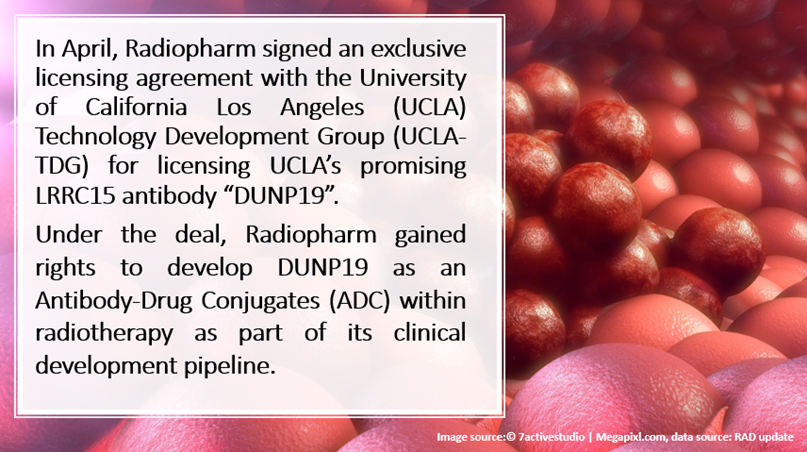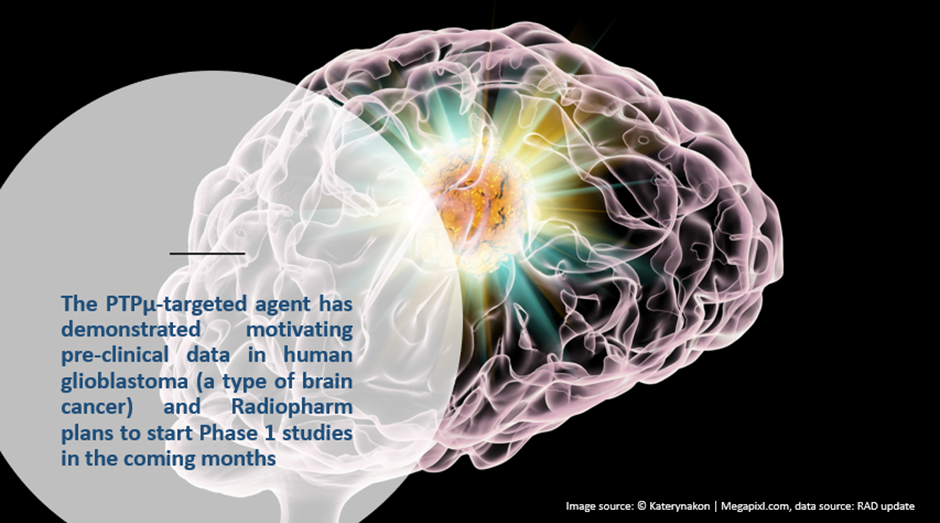Highlights
- Radiopharm has cracked multiple deals that indicate the potential for advancing its clinical development pipeline.
- The company gained access to rare medical isotope, antibody, and nanobodies that aid its progress to clinical trials.
- RAD added brain tumour technology to its portfolio under an agreement with CWRU.
Radiopharm Theranostics (ASX:RAD) has been going full steam ahead to achieve its goal of developing cancer treatment. The company is committed to developing a world-class platform of radiopharmaceutical products for both diagnostic and therapeutic uses.
Since the beginning of the year 2022, the Melbourne-based biotechnology company has engaged in multiple strategic agreements and collaborations crucial for running the wheels of its clinical development pipeline.
Let us look at the company’s progress across such deals in recent times.
Supply agreement with TerraPower for rare medical isotope
In February, Radiopharm signed a supply agreement with TerraPower, one of the major nuclear innovation firms founded by Bill Gates. The deal will facilitate the progress of the next generation of radiopharmaceutical therapies for cancer treatment.
As per the agreement, TerraPower Isotopes, LLC, TerraPower’s subsidiary, will deliver Actinium-225 to Radiopharm. Notably, Actinium-225, a rare medical isotope, will be employed in drug trials, including targeted alpha therapy in several diseases. The company plans to deploy this isotope in the Phase 1 trial with RAD402 (Ac225-PSAmAb) in prostate cancer patients.
At the time of this update, CEO Riccardo Canevari had highlighted that access to a superior quality medical isotope like Actinium-225 would enable Radiopharm to speed up the clinical development of its broad pipeline.
Agreement with GenesisCare advances clinical journey
In March, Radiopharm executed a Letter of Intent (LOI) with global oncology provider GenesisCare. This arrangement aided the company’s endeavours to commence the Phase 1 trial in Australia.
Under the LOI, Radiopharm plans to employ its novel radiopharmaceutical (RAD204) directing PDL/1-positive lung cancer in patients at GenesisCare’ s clinical research centres in Australia.
The clinical trial will likely be the first in humans with this compound. Its success will clear roads for extended development in lung cancer patients who are sensitive to this type of immunotherapy treatment.
In July, the company extended its contract with GenesisCare to aid a second clinical trial in Australia, focused on prostate cancer.
Exclusive licensing agreement with UCLA-TDG

The DUNP19 antibody is believed to hold the potential to affect cancer and tumour microenvironment (TME) cells, which are generally overlooked by the currently available antibodies against cancer.
Exclusive sublicensing agreement for brain tumour technology
In June, under an exclusive sublicensing agreement with NeoIndicate, Radiopharm secured the rights to develop the PTPµ-targeted agent as part of its clinical development pipeline.
The PTPµ-targeted agent has dual purpose. It can function both as an imaging agent and as a radiopharmaceutical theranostic to destroy tumours. It was developed at the Case Western Reserve University (CWRU), Ohio.

Supply agreement with Isotopia
In June, Radiopharm cracked another major agreement with Isotopia Molecular Imaging. The deal is expected to facilitate the progress of the next generation of radiopharmaceutical therapies against cancer.
Under the agreement, Radiopharm gained access to high-quality Lutetium-177 N.C.A, a critical isotope needed in several clinical trials in its clinical pipeline.
Strategic agreements with Lantheus and Nanomab
Earlier this month, Radiopharm entered a partnership agreement with Lantheus to co-develop NM-01.
NM-01 is a nanobody that can be labelled with radioisotopes for the potential diagnosis and cure of different kinds of tumours. Lantheus will supply the diagnostic product candidate of NM-01 to Radiopharm for use in its therapeutic clinical trials.
In another development, the company acquired the imaging rights of NM-01 from NanoMab for the Chinese market and global IP rights for therapeutic use.
Radiopharm is committed to leveraging radiopharmaceutical therapies, which are expected to register tremendous growth in the near future for cancer treatment. With access to such high-quality components, the ASX-listed biotechnology company seems to be in a sweet spot to tap the lucrative growth opportunities. Meanwhile, to accelerate its clinical programs, the company remains well funded with cash and equivalents worth AU$27.0 million at the end of June quarter.
RAD shares were trading at AU$0.190 in the early hours of 30 August 2022, up over 2.7% from the last close.




